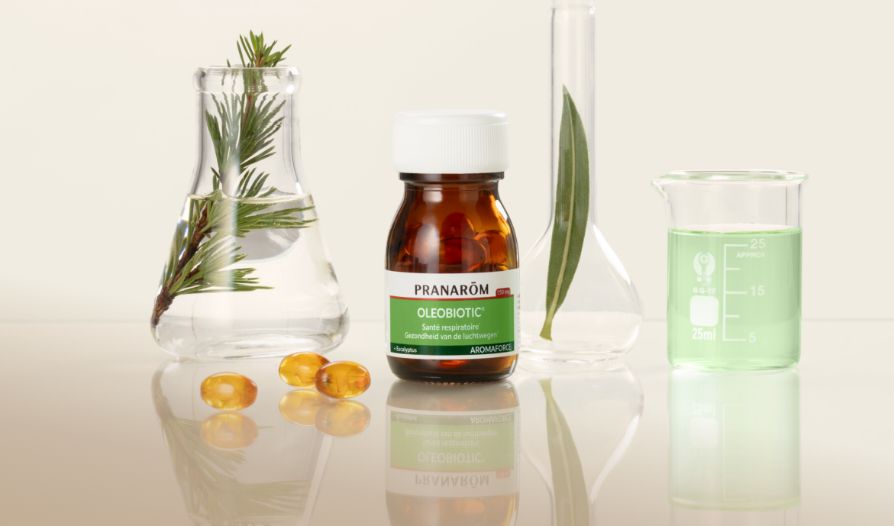What are the symptoms of menopause?
Menopause marks a major turning point in a woman's life, usually between the ages of 45 and 55. It's a transitional period when menstruation stops for good, but it's accompanied by significant hormonal changes . The drop in estrogen and progesterone often causes a range of uncomfortable symptoms, both physically and emotionally. Fortunately, there are natural ways to relieve menopause symptoms : learn more.
What are the symptoms of menopause?
1. Hot flashes and night sweats
Hot flashes are one of the most common symptoms of menopause. They are characterized by a sudden feeling of intense heat, often followed by profuse sweating. These episodes can occur at any time of the day, but also during the night, which can cause night sweats . These symptoms are directly related to hormonal fluctuations, particularly the drop in estrogen levels, which affects the body's thermal regulation system.
2. Sleep disorders
Hormonal changes associated with menopause can disrupt the sleep cycle . Many women complain of insomnia, frequent nighttime awakenings, or unrefreshing sleep. Nighttime hot flashes and sweating can also aggravate these problems. Disrupted sleep can then lead to chronic fatigue and affect the quality of life of the menopausal woman.
3. Vaginal dryness and urinary discomfort
The drop in estrogen also affects vaginal and urinary tissues, causing vaginal dryness . This can lead to pain during intercourse, itching, or burning. Urinary problems (such as frequent urination or repeated urinary tract infections) are also common.
4. Mood swings and emotional disturbances
Hormonal fluctuations can also affect mood. Women going through menopause often report mood swings , irritability, anxiety, and even depressive episodes. This emotional imbalance is often compounded by fatigue related to sleep disturbances and physical discomfort.
5. Weight gain and body shape changes
Menopause often causes weight gain , especially around the abdomen. This is due to a slowdown in metabolism and a redistribution of fat caused by hormonal changes. These changes can be frustrating for some women, but they are part of the natural transformations associated with this phase of life.
6. Decreased bone density and risk of osteoporosis
The decrease in estrogen directly impacts bone health . Women going through menopause are more prone to rapid bone loss , which increases the risk of osteoporosis. This bone fragility can lead to fractures, particularly in the hips, wrists, or spine.
7. Skin and hair problems
Hormonal changes can also affect the quality of skin and hair. Women going through menopause often notice drier, less elastic skin, as well as hair loss or thinning hair. These symptoms (although only cosmetic) can affect self-confidence.
What is the first sign of menopause?
The first sign of menopause is often an irregular menstrual cycle. Periods become unpredictable, less frequent, or heavier before stopping completely. This phase, called perimenopause , can last for several years and is accompanied by other symptoms such as hot flashes, sleep disturbances, and mood swings. These changes are due to the gradual decrease in estrogen levels in the body. Each woman experiences this transition differently, but irregular periods are the first classic indicator that menopause is approaching.
How to relieve menopause symptoms?
Bud macerates
Bud macerates can support the body in the face of hormonal imbalances. For example, apple bud is traditionally used to soothe hot flashes and better manage emotions. In addition, hawthorn bud can help reduce stress and promote restful sleep, aspects often disrupted by menopause.
Birch sap
Birch sap, known for its purifying and revitalizing properties , can also help manage menopausal symptoms. By supporting the elimination of toxins and providing essential minerals, it helps maintain overall vitality. In addition, it can support joint health , an aspect often affected by hormonal decline.
Propolis
Propolis, a beehive product, has antioxidant properties that can help maintain good overall health during menopause. By supporting the body's natural defenses, it contributes to overall well-being and can soothe discomforts associated with hormonal changes.
Herbalgem Solution to Alleviate Menopause Symptoms
Herbalgem offers a natural and effective solution to help women live through menopause with the Fem50+GEM BIO complex. This product has been specially formulated to alleviate the discomforts associated with menopause , such as hot flashes, intimate dryness, sleep disorders and joint pain.
Thanks to the synergistic action of 5 plants, this complex accompanies women by offering comprehensive support. The bud of young cranberry shoots acts against hormonal discomfort, while the apple bud supports emotional balance. The bramble bud contributes to joint well-being, often compromised during menopause. In addition, the hawthorn bud helps to soothe sleep disturbances and stress, and the sage mother tincture plays a role in regulating excessive sweating and hormonal balance.
Unlike tablets, Herbalgem liquid solutions are rapidly absorbed by the body, for optimal effectiveness. With Fem50+GEM BIO, Herbalgem offers a natural approach to alleviate menopause symptoms and support women's daily well-being.
How to adapt your lifestyle to reduce the signs of menopause?
Adopt a balanced diet
A diet rich in calcium and vitamin D is essential for maintaining bone health. Dairy products, oily fish, green leafy vegetables such as kale or broccoli: they can help you prevent osteoporosis which is accentuated by menopause. Antioxidants (found in fruits and vegetables) also play a key role in protecting the skin and supporting the immune system.
Practice regular physical activity
Physical exercise ( such as walking, yoga, or swimming) is important for maintaining good bone density, preventing weight gain, and regulating mood. Additionally, physical activity promotes better sleep and helps manage stress, which can help relieve some symptoms of menopause.
Managing stress and taking care of the quality of your sleep
Taking care of your mental well-being is just as important, whether you are going through menopause or post-menopause . Practices like meditation, deep breathing or even relaxation techniques can help you better manage stress . A peaceful sleep environment, free of distractions, can provide a better quality of nighttime rest.
When to see a doctor?
It is essential to consult a doctor or gynaecologist if menopause symptoms become too bothersome or affect quality of life. Hormone replacement therapy (HRT) can be considered to alleviate some symptoms, but these treatments must be prescribed and closely monitored by a healthcare professional due to potential health risks, including an increased risk of cancer or cardiovascular disease. It is therefore important to discuss all options (including natural alternatives such as Herbelgem) with a specialist.













